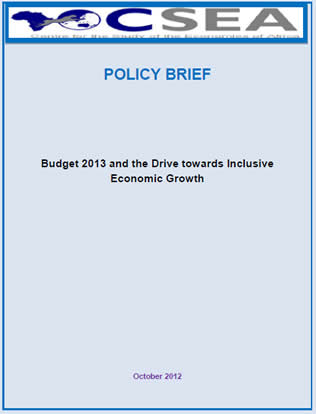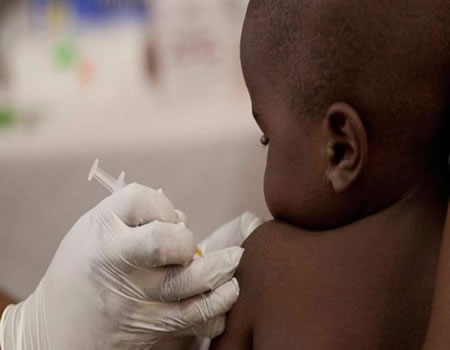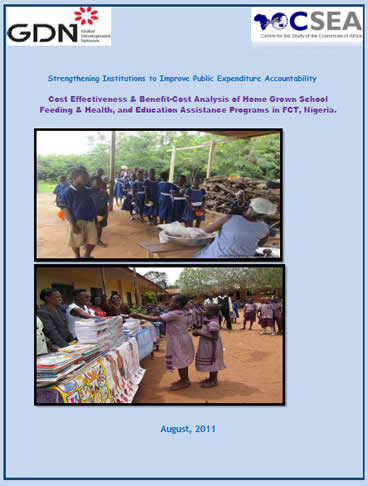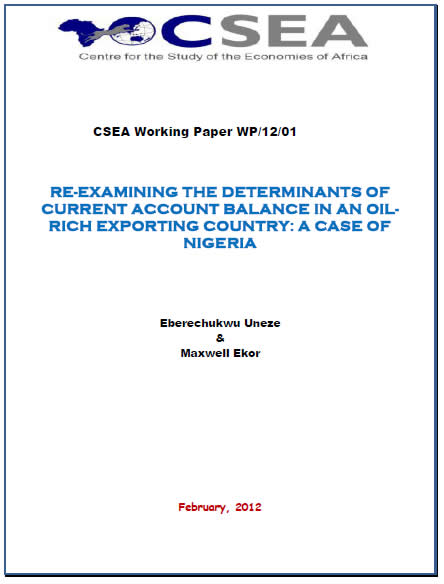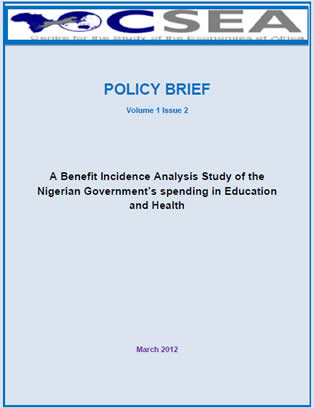Good Governance in Nigeria Must Begin at the Local Council, Not From Abuja
President Jonathan seems to realize that good governance and service delivery matters most at the local council levels. He also seems to understand the constraints to performance at that level and is willing to tackle them. A noble attempt made in pursuit of this goal was a proposed constitutional amendment in August 2011 to scrap the special state-local council joint account with a view to granting the local councils financial autonomy. Under the present arrangement, allocations to local councils are deposited into the special account. Unfortunately, those accounts are controlled by the state governors and local councils are funded at their discretions.
The perennial abuse of the system must have prompted the president to propose the amendment. However, the proposal met with a staunch opposition from the state governors, and the president did little to push the issue further.
In the matters of governance and development, the local council is the place where the rubber meets the road. The set of activities that fall within the purview of local councils are the building blocks of all indices of good governance, economic growth and human development. According to the 1999 constitution, which is currently in force, local councils are responsible for primary, adult and vocational education, health services, agriculture and natural resource development. More importantly, the local council is the level of government that is most accessible and can be most accountable to the citizens. Poor villagers who cannot afford the cost of transportation to state capitals or the national capital can walk to their local councils to make their voices heard and demand accountability for service provisions.
Local councils are treated as cash cows by state governors and political party “kingmakers” rather than development centers that they are designed to be. Local council chairmen are typically nominated by their parties, whose de-facto leaders are the state governors, and supported financially by kingmakers who expect to be paid back. This gives room for resource leakages and other forms of abuse of public treasury in the sense that funds meant for basic services are diverted for personal uses.
The consequences of abuse of the joint-account framework over the years are devastating. Nigeria is ranked among the 16 countries with the highest infant mortality rate in the world[1] and its adult literacy rate stands at only 61 percent. Public primary education has been starved of funds and is being attended by only the poor who cannot afford private school. With around 70 percent poverty rate, the majority of children are given poor quality of education. A poor quality of basic primary education is a poor foundation for higher learning. Little wonder then that the country is faced with graduates of higher institutions who are lacking in productive skills. It is not surprising that we are faced with youth unemployment of alarming proportion. In order to turn this situation around, the President and the national assembly must find ways to grant financial autonomy to local councils to ensure that they have the funds to provide the infrastructure required in their schools and hospitals, and pay their teachers and hospital staff in time.
The national assembly must find ways to ensure that financial autonomy is accompanied by strong institutions that ensure that local councils are accountable to their constituents. There are two important elements of this instrument. One, the federal government must publish allocations to local governments and compel them to publish their scheduled projects and allotments. This will enhance transparency. Two, citizens must be able to impeach elected officials. The power to exercise oversight over local councils and impeach the council chairman when necessary rests in the legislative body that is constituted by the ward councilors. However, this constitutional role is being usurped by the council chairmen, who appoint their cronies as “supervisory councilors” that have taken over the duties of elected ward councilors in many cases. These appointments are unconstitutional and should be erased from the local governance structure.
It is a welcome development that the national assembly is considering a revision of the 1999 constitution. Good enough, local council reforms have been included in the agenda. However, the existing constitution has provided the structures for good governance, but they are in very weak positions. The focus of this constitutional review, as far as local government is concerned, should be granting financial autonomy to local councils and strengthening the system to ensure proper oversight over the council chairmen. Responsible authorities, including the electoral bodies, need to convince and assure citizens that their rights to recall elected officials are guaranteed and the process is seen to be transparent by all at all times.
It is not clear that average Nigerians care so much about how many years a president or a governor spends in office and whether they run for one term or three. It is not even clear that they care about how long a local council chairman is in office. What they care about is a local government system that is accountable and effective in delivering services. The pervasive focus of governance reforms on federal and state governments obviously has very little or nothing to do with the quality of governance at the local level where it really matters.
[1] CIA, The World Factbook Download File
Read More


 English
English
 Arab
Arab
 Deutsch
Deutsch
 Português
Português
 China
China
